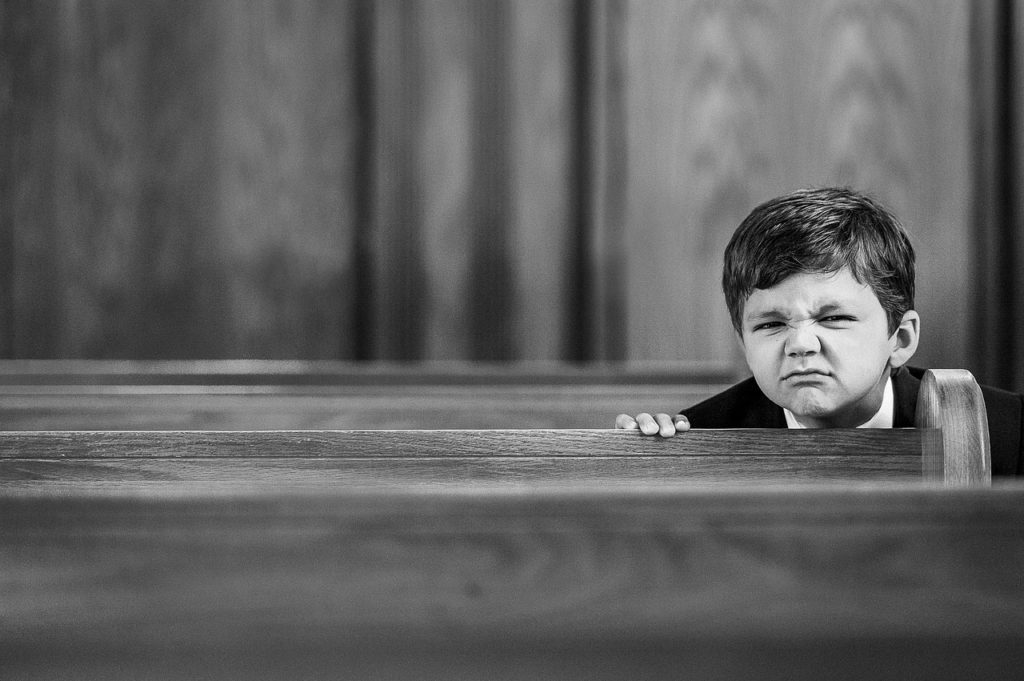
pixagod / Pixabay
When I was in about grade 4, I was bored in church.
There were a long sermon and long prayers and a whole bunch of singing and some recitation that held little meaning to me. It just kept on going and going, on and on. I remember thinking that if I knew where we were in the service, I might it would be easier to endure.
Since my father was the minister, I had an in. One Saturday, I asked him if he could write out the order of events in the upcoming service. He smiled and directed my attention to the familiar bulletin. One of the pages was entitled, “Order of Worship” and beneath this was written, in order, all the elements of the service. These included “Call to Worship,” “God’s Greeting,” “The Law,” “Call to Confession,” “Prayer of Confession,” “Words of Assurance,” “Congregational Prayer,” “Offering,” “Sermon,” “Benediction” with hymns of praise, adoration, repentance and thanksgiving, in the appropriate places. I had no idea that every service proceeded through the same elements each week.
The Call to Worship
The “Call to Worship” always kicked things off. A Bible passage was usually read, different every week, but they all communicated that we are sitting in church that morning, not because we decided to come, but because we responded to a call. The one who calls us to worship is none other than the Triune God. I’ve noticed that without this sense of calling, I can easily fall into the mistaken idea that my arrival signals the beginning of worship.
[click_to_tweet tweet=”A case for an explicit liturgy: Rituals and practices affect us on a deep level–they can shape who we are. When we weekly hear God call us to worship, we begin to learn that worship doesn’t start with us. #liturgy #worship” quote=”Rituals and practices affect us on a deep level–they can shape who we are. When we weekly hear God call us to worship, we begin to learn that worship doesn’t start with us.”]
God’s Greeting
It’s his house and as a host he greets us. The weekly repetition of this element reminds us that this building is not just bricks and mortar that we assembled and pay for with weekly payments to the bank. We were drawn in by God, and he welcomes us as host–in this sense, we are on holy ground. Lots of churches do the horizontal greeting, congregants to each other, but without the vertical greeting coming first, isn’t the whole experience flattened?
[click_to_tweet tweet=”A case for an explicit liturgy: Rituals and practices affect us on a deep level–they can shape who we are. When we regularly hear God greet us, we begin to learn that we are in His house, not He in ours. #liturgy #worship” quote=”Rituals and practices affect us on a deep level–they can shape who we are. When we regularly hear God greet us, we begin to learn that we are in His house, not He in ours.”]
Call to Confession
This is a weekly reminder that we are sinners and in need of forgiveness. It is followed by the “Prayer of Confession” which is an acknowledgment of this fact. The Good News is that these are followed with the “Assurance” that God forgives. The Catholics do this individually. When I was a kid, we did it collectively. Nowadays, we do this occasionally–usually with a song. Does it pass unnoticed those unfamiliar with liturgical confession?
Prayer
My new church is good at this. The church is open for prayer on some weekdays. There’s a prayer room and there is communal prayer and the elders do a lot of praying. Prayer is a strange activity when you think about it. We are talking to someone who appears to not be there. It is an enchanted activity.
Rituals and practices affect us on a deep level–they can shape who we are. When we weekly hear God call us to worship, we begin to learn that worship doesn’t start with us. When we regularly hear God greet us, we begin to learn that we are in His house, not He in ours. When we confess our sins and are forgiven, we learn the gospel. When we sing and pray to someone we can’t see, we believe it because we are doing it.
We don’t learn it in an intellectual sense. Very little of this occurs on a level we are aware of. Modern churches, like modern society, is very rational and emphasize knowledge and information with occasional forays into apologetics and worldview. These things are important, but our identity lives much deeper than these. Far deeper than the mind, deeper even than the heart. The Hebrew believed the soul was in the gut–that’s the level where we are shaped.
Worship services can shape us. Do you think they might be able to do so even more effectively with explicit liturgies?
This post was inspired in part by Desiring the Kingdom by James K. A. Smith. I strongly recommend it for church leaders.
